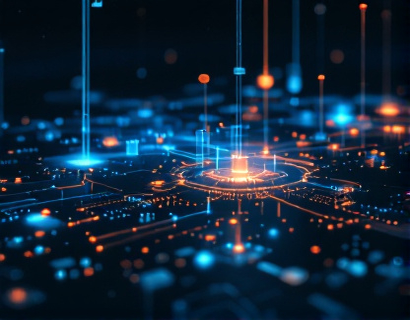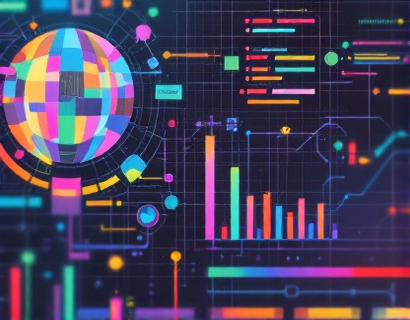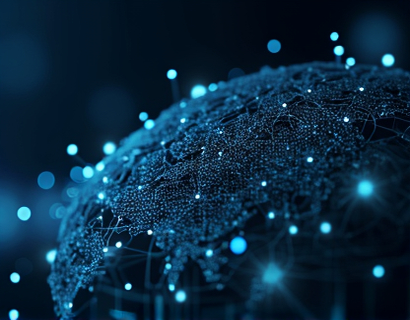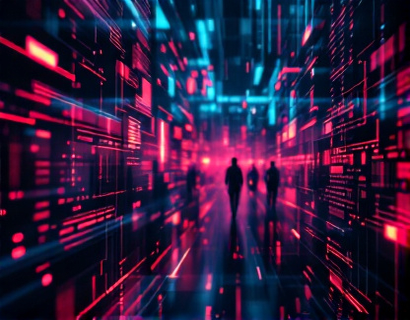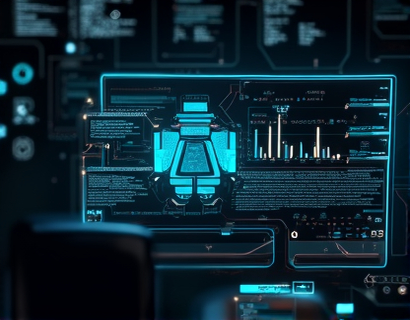Unleashing Next-Gen Productivity: The Synergy of AI and Crypto
The intersection of artificial intelligence and cryptocurrency is giving birth to a new era of digital productivity. This fusion is not just a technological curiosity but a transformative force that is redefining how we work, interact, and manage our digital lives. For tech enthusiasts and early adopters, this convergence offers unprecedented opportunities to enhance efficiency, security, and innovation. This article explores the dynamic relationship between AI and crypto, highlighting how these technologies are synergizing to create next-generation digital solutions that maximize productivity.
Understanding the Basics: AI and Cryptocurrency
To fully appreciate the impact of AI and cryptocurrency on productivity, it's essential to understand the fundamentals of each technology. Artificial intelligence, broadly defined, encompasses systems that can perform tasks requiring human intelligence, such as learning, reasoning, and self-correction. AI technologies include machine learning, natural language processing, and computer vision, each contributing to the automation and optimization of various processes.
Cryptocurrency, on the other hand, is a digital or virtual currency that uses cryptography for security and operates on a decentralized network, typically a blockchain. Bitcoin, the first and most well-known cryptocurrency, paved the way for thousands of alternative coins and tokens, each with unique features and use cases. The decentralized nature of cryptocurrency ensures transparency, security, and resistance to censorship, making it an attractive tool for various applications beyond finance.
AI in Cryptocurrency: Enhancing Security and Efficiency
One of the most significant impacts of AI on cryptocurrency is in the realm of security. Blockchain networks, while inherently secure, are not immune to attacks. AI algorithms can analyze vast amounts of data to detect anomalies and potential threats in real-time, enhancing the security of crypto transactions and wallets. Machine learning models can identify patterns indicative of fraudulent activities, such as double-spending or phishing attacks, and alert users or automatically mitigate risks.
Beyond security, AI is improving the efficiency of cryptocurrency markets. Smart contracts, self-executing contracts with the terms directly written into code, leverage AI to automate complex transactions. These contracts can execute trades based on predefined conditions, reducing the need for intermediaries and speeding up the process. AI-driven trading bots use sophisticated algorithms to analyze market data, predict price movements, and execute trades with minimal human intervention, maximizing returns and minimizing risks.
Crypto-Powered AI Solutions: A New Paradigm
The integration of cryptocurrency into AI solutions is creating a new paradigm of digital productivity. One prominent example is the use of decentralized computing platforms that leverage blockchain technology to distribute computational tasks. These platforms, powered by cryptocurrencies, allow users to rent out their computing resources and earn tokens in return. This model not only democratizes access to powerful computing resources but also incentivizes participation, creating a robust and scalable ecosystem.
Another area where AI and crypto converge is in data management and analytics. Traditional data storage and processing methods are often centralized and vulnerable to breaches. Decentralized data storage solutions, such as IPFS (InterPlanetary File System), use blockchain to create a distributed network where data is stored across multiple nodes. AI algorithms can optimize data retrieval and processing in these networks, ensuring fast and secure access to information. This synergy enhances data privacy and reduces latency, crucial for applications requiring real-time insights.
Enhancing Productivity with AI-Driven Tools
The fusion of AI and cryptocurrency is giving rise to a suite of tools designed to boost productivity across various domains. For instance, AI-powered project management platforms can integrate cryptocurrency to facilitate seamless transactions and incentivize contributions. These platforms use blockchain to ensure transparency and accountability, tracking tasks, deadlines, and payments in a tamper-proof manner. Team members can receive tokens as rewards for completing tasks, fostering a motivating and transparent work environment.
Content creation and management are also benefiting from this technological marriage. AI-driven content generation tools can produce high-quality text, images, and videos, while cryptocurrency can provide a new model for content monetization. Creators can tokenize their content, allowing fans and supporters to purchase exclusive access or contribute to the creation process. This not only ensures fair compensation for creators but also builds a loyal community around their work.
Decentralized Applications: A New Frontier
Decentralized applications (dApps) are at the forefront of the AI and crypto revolution, offering innovative solutions that enhance productivity and collaboration. dApps leverage blockchain to create applications that are transparent, secure, and resistant to censorship. AI can enhance dApps by providing intelligent features such as predictive analytics, personalized recommendations, and automated workflows.
For example, a decentralized collaboration platform can use AI to analyze team dynamics and suggest optimal workflows, assign tasks based on individual strengths, and predict potential bottlenecks. Cryptocurrency can facilitate seamless transactions within the platform, from paying for services to rewarding contributions, all in a transparent and secure manner. This creates a self-sustaining ecosystem where productivity is maximized, and trust is built through decentralization.
Challenges and Considerations
While the potential of AI and cryptocurrency to enhance productivity is immense, there are challenges and considerations that must be addressed. One of the primary concerns is the regulatory landscape. The decentralized nature of cryptocurrency and the complex algorithms of AI can complicate compliance with existing laws and regulations. Organizations and developers must navigate this evolving legal environment to ensure their solutions are both innovative and compliant.
Another challenge is the technical complexity involved in integrating AI and cryptocurrency. Developing robust and secure systems requires expertise in both domains, which can be a barrier for some. However, as the ecosystem matures, more user-friendly tools and platforms will emerge, making it easier for tech enthusiasts and early adopters to leverage these technologies.
Future Prospects: The Road Ahead
The future of AI and cryptocurrency in enhancing productivity is bright, with numerous possibilities on the horizon. As AI algorithms become more advanced, we can expect even more sophisticated tools that automate complex tasks and provide deeper insights. The integration of AI with other emerging technologies, such as quantum computing and the Internet of Things (IoT), will further amplify the impact on productivity.
Cryptocurrency is also evolving, with new layers and protocols being developed to enhance scalability, privacy, and interoperability. The rise of layer 2 solutions and cross-chain technologies will make it easier to integrate AI and crypto solutions, creating a more seamless and efficient digital experience. The adoption of central bank digital currencies (CBDCs) and the growth of the decentralized finance (DeFi) sector will also play a crucial role in shaping the future landscape.
For tech enthusiasts and early adopters, the convergence of AI and cryptocurrency presents a unique opportunity to be at the forefront of a technological revolution. By embracing these innovations, individuals and organizations can unlock new levels of productivity, security, and creativity, paving the way for a more connected and efficient digital world.
























